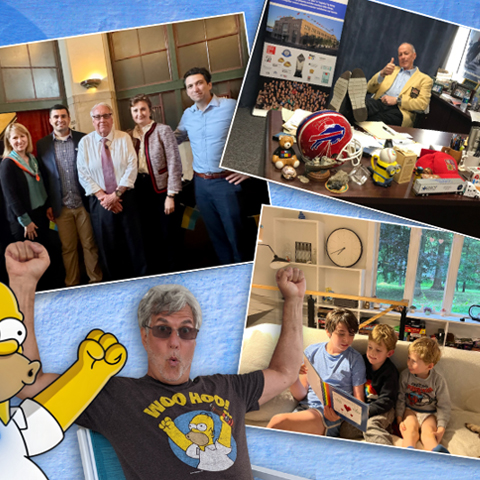
by Ryan Markiewicz | Dec 16, 2025 | Berlin's Wall
All,
As you know, I usually try to keep Berlin’s Wall light. And in a way, this one is still about light — light amid darkness.
Most of you have likely read about the horrific shooting at Bondi Beach, Australia, which took place on the first night of Hanukkah — the literal Festival of Light.
More than 16 people were killed, including a 10-year-old girl and an 87-year-old man, and dozens more were injured.
But amid that darkness, there were moments of light.
Many of us have seen the heroic actions of Ahmed al-Ahmed, a Muslim refugee from Syria who emigrated to Australia years ago and built a new life there. When he saw the gunman, Ahmed charged him, wrestled him to the ground, and was shot in the process.
https://www.cnn.com/2025/12/14/world/video/bondi-gunman-tackle-digvid
What you may not have seen is the equally courageous act by Boris and Sofia Gurman, a Jewish couple originally from Russia who had also made Australia their home. When Boris, 69, saw the gunman step out of his car with a weapon, he didn’t run. He attacked. Sofia was right there with him. They became the first two victims of the massacre.
https://www.cnn.com/2025/12/16/world/video/dashcam-bondi-beach-couple-ripley-digvid
One man Muslim. One man Jewish.
Different histories. Different faiths. Same instinct. To step forward. To do the right thing. Even when the odds were overwhelming.
This isn’t about Muslims or Jews. It’s about good people — of all faiths and backgrounds — choosing courage over fear.
Also, please keep in mind that both men were immigrants — people who came to a new country, built lives, raised families, and in a moment of crisis showed extraordinary moral clarity.
There are never easy answers to the hard questions this world keeps throwing at us. But these actions — and the paths that led these people to that moment — are worth holding onto as a reminder of what light really looks like. And, hopefully, that helps give each of us the courage to do the right thing and to find the best way forward whenever it’s our time as well.
-Jim Berlin
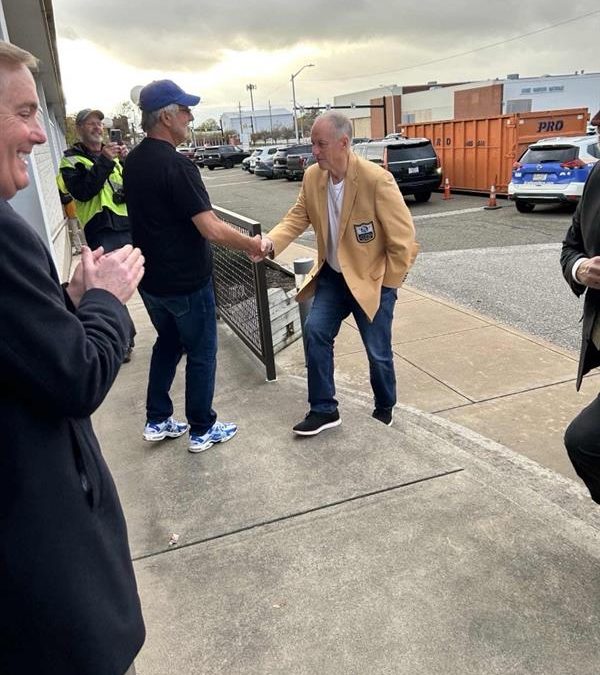
by Ryan Markiewicz | Oct 23, 2025 | Berlin's Wall
All,
Finally back. Long trip. Long flights home. But happy to be back in Erie (despite the 50-degree weather and the week of rain expected 🤨)
But “reality” ain’t so bad, and started with a bang my first day back. Two events, both related to Jim Kelly (ex-Buffalo Bills Hall of Fame quarterback).
The first was the unveiling of our Joe Moore Award mural, which our good friend, Jason Mumford, recently finished on the wall of our ETN building facing the main drag in downtown Erie. As a reminder, LP is the Official Logistics Sponsor of the Joe Moore Award that honors the best offensive line in college football. Like LP, the O-line is what makes stars of the QBs and running backs–the ones who do all the “dirty work” to clear the way for success. The unknown heroes.
The mural is stunning. Here is a cool time-lapse video of how Jason does what he does (freehand. Hard to believe!)
https://youtu.be/jbBrOpe6Bp4?si=AdvlTe-hwRe1UV6A
Jim Kelly was kind enough to attend this event. As a Hall of Fame QB, he full well knows the value of a great team up front. He had Will Wolford, Jim Ritcher, Kent Hull, Glenn Parker, and Howard (House) Ballard up front for all those Super Bowl years protecting him and opening holes for Thurman Thomas and the other running backs. Fitting that he could make it.
Afterwards, I had the honor of introducing Jim as the guest speaker at the Jefferson Society Global Summit, in front of a packed house of 500 people at Gannon University. Jim gave a powerful and very moving talk about his career and life and how one gets measured by how you handle adversity, because every life will have some (Jim has had way more than his share, unfortunately), but how the grit and toughness and perseverance that made him a star QB helped him through all the personal trials as well. That toughness plus the unwavering support of his 4 F’s. Faith. Family. Friends. Fans.
It was a memorable talk, and no one in the crowd was unmoved. Jim’s final message was what I used for today’s morning thought: “Make a difference today for someone who’s fighting for their tomorrow.” Good and important advice.
An unforgettable evening. (And our good friend, Paul Markewicz, Ryan’s Dad, even got to catch a pass from Jim at the end of the night and to keep an autographed ball. Luckily for Paul–and for all of us who know him–he didn’t let the nerves get the better of him, and he made the catch easily 😉).
Onward! -JB
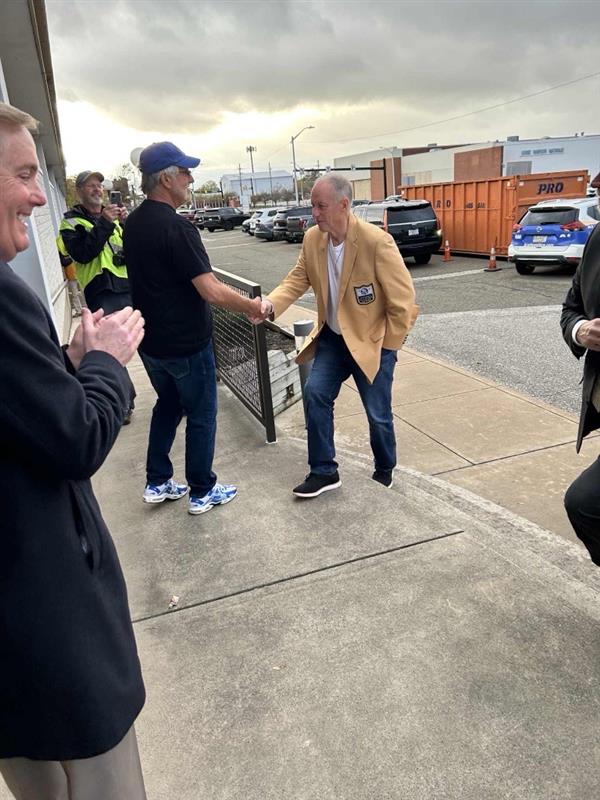
Greeting Jim Kelly for the mural unveiling at Logistics Plus. (Notice the yellow Hall of Fame jacket
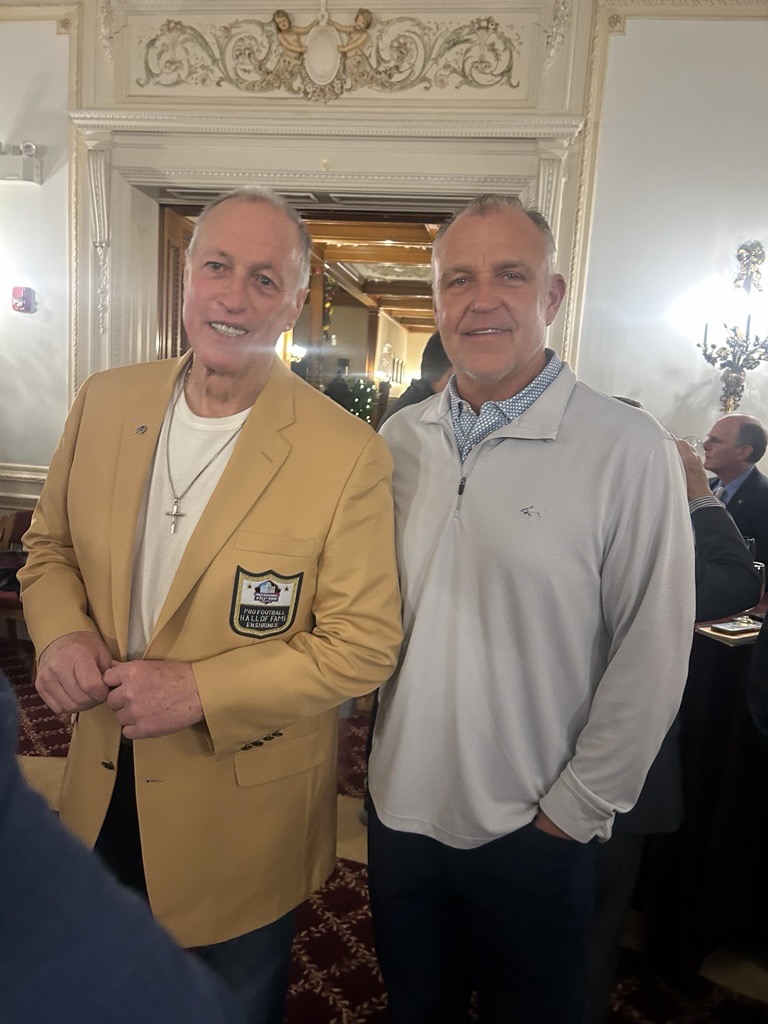
Paul made a good clean catch after answering Jim’s trivia connection. Did not embarrass himself or us 👍

Nice keepsake 🙂
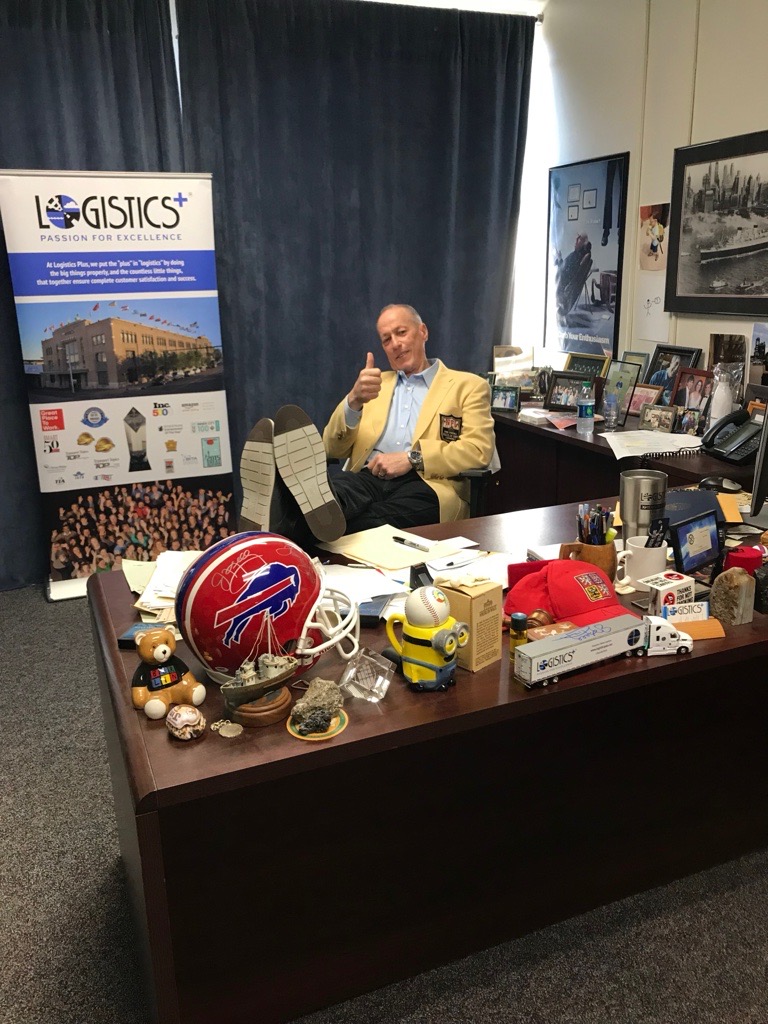
Jim, taking over my desk in Union Station 😊
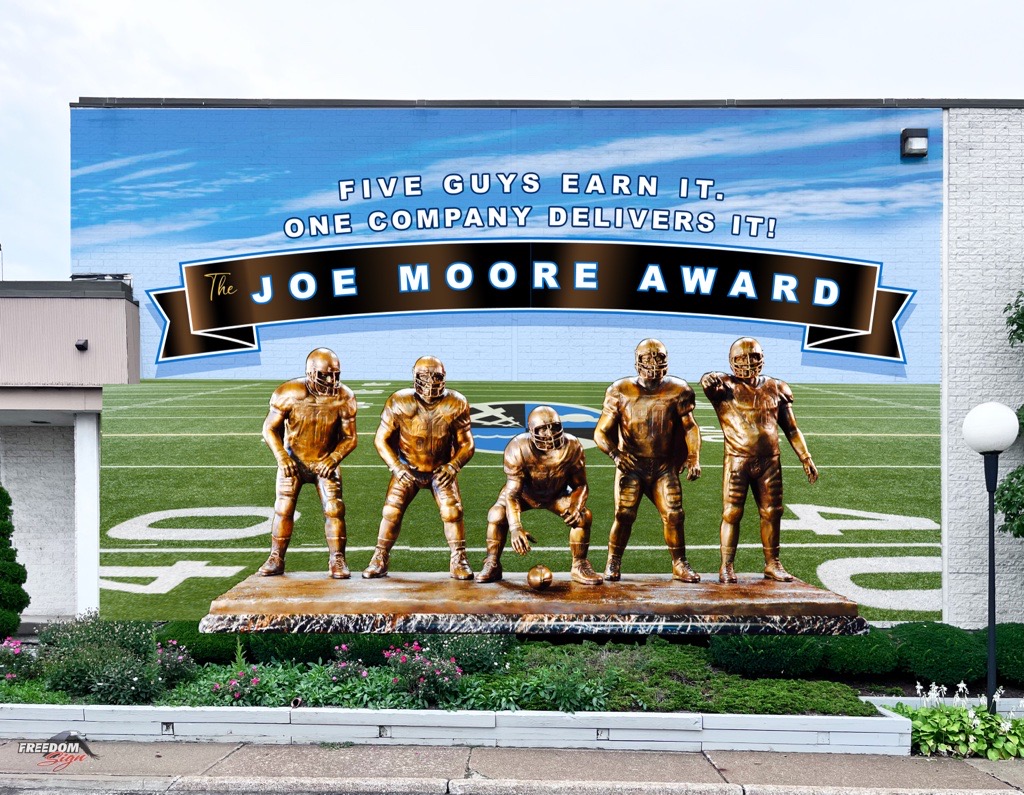
Joe Moore Award mural. Jason always does such a great job!

Our cool JMA t-shirt giveaways 🙂
Here is our announcement if you want to see more 🙂
Logistics Plus Unveils Joe Moore Award Mural in Downtown Erie

by Ryan Markiewicz | Oct 20, 2025 | Berlin's Wall
Our last stop on this trip was the ancient city of Jerash, in northern Jordan. Here’s ChatGPT’s summary of its history:
🏛️ Jerash: The Rome of the East
Just north of Amman sits Jerash, one of the best-preserved Roman cities in the world — often called the Pompeii of the Middle East. Walking its colonnaded streets, you can still see the outlines of temples, theaters, baths, and markets almost exactly as they stood 2,000 years ago.
Once part of the Decapolis — a league of ten Roman cities — Jerash thrived on trade and agriculture, blending Greco-Roman architecture with local Arab and Nabataean influences. The city was buried for centuries under sand and soil, which helped preserve it until its rediscovery in the 1800s.
Today it stands as an extraordinary reminder that empire, artistry, and ambition once reached this far into the desert — proof that the drive to build and create isn’t new. It’s been in us all along.
Here’s what happened:
- After a major earthquake in 749 AD, Jerash was largely abandoned.
- Over centuries, wind-blown sand and silt slowly buried the ruins, protecting them from weathering and looting.
- When 19th-century explorers began digging, they found whole Roman streets, plazas, temples, and theaters almost intact — columns still upright, mosaics still visible, even wheel ruts in the stone roads.
So, like Pompeii, Jerash gives you the eerie feeling that you’ve stepped straight back into antiquity — a functioning Roman city frozen in time, just without the ash.
I first visited Jerash way back in my youth, and then again about 12 years ago. Returning now, I could hardly recognize it. So much more has been excavated, and the town around it has grown dramatically.
It amazes me to think that Greeks and Romans were once here and made this part of their empire — a long, hard journey for them to reach this place. But that’s what they did. And eventually, as with all empires, they grew too large, became unmanageable, and fell. The way of empires, I suppose.
This trip has been incredible. Standing among all these ancient sites and stories reminds me again that while technology changes, people do not. The same ambition, creativity, and frailty run through every era. In the time of the Egyptians, Greeks, and Romans, they were the height of human civilization — just as we believe ourselves to be now.
So maybe it’s worth remembering that thousands of years from now, new civilizations will look back at our age — at our cities, our technologies, our politics — and will likely see us as backward and rudimentary as we see the ancients.
Hmmm…
Heading back to reality tomorrow. Excited for what comes next.
For one thing, I know Jim Kelly will be in Erie to join us for the unveiling of our beautiful Joe Moore Award mural, and then will be speaking at the Jefferson Society Global Summit where I will have the honor of introducing him. A true legend!
Onward!
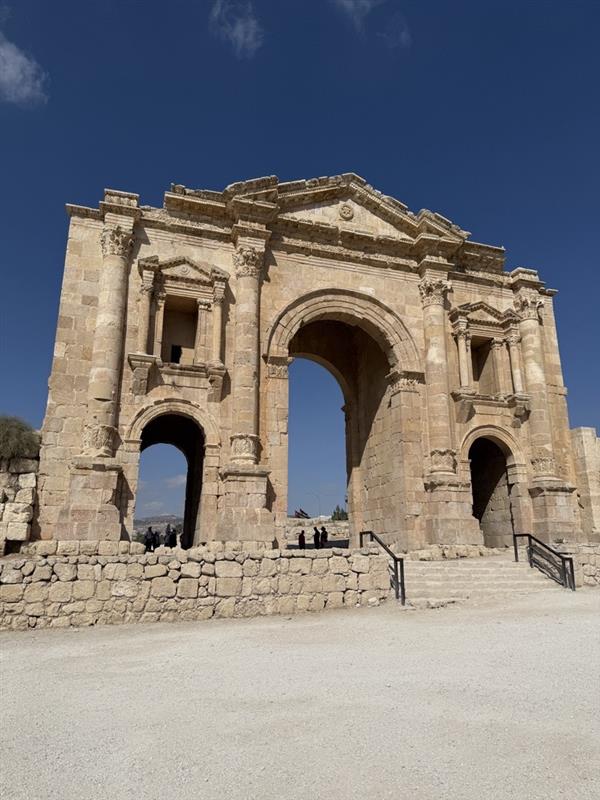
Hadrian’s Gate: Not bad for over 2,000 years old and several major earthquakes 🙂
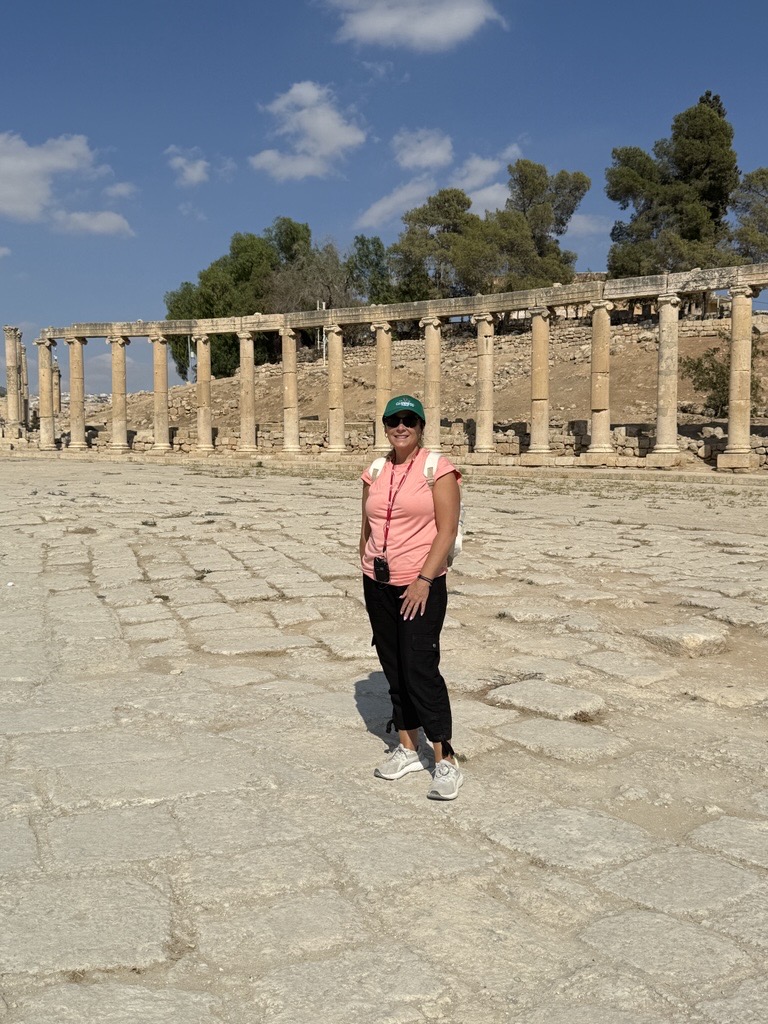
This was the ancient Forum. The town square where people gathered to discuss (what else?) politics, sports, religion etc.
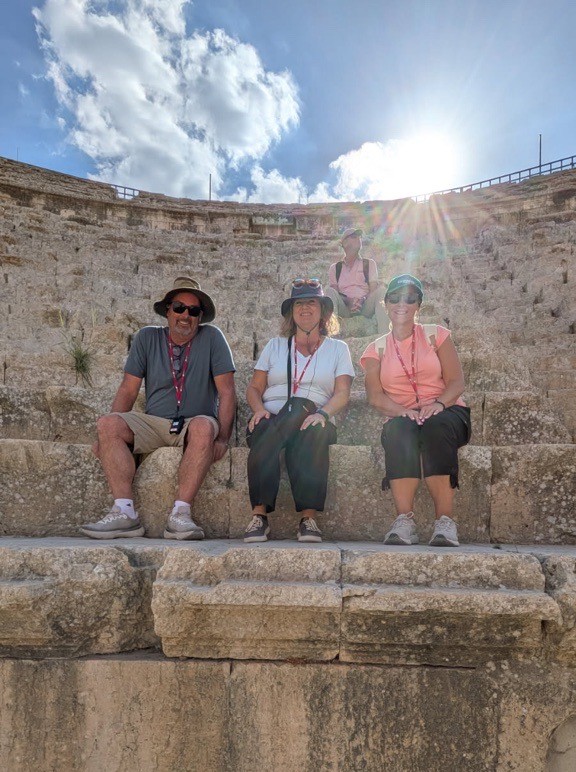
Hallie and some friends in the amphitheater. Seated 3,000 people. And (no kidding, swear to God) the seats were all numbered. And box seats cost more. Upper level were cheap. The more things change…right? 😆
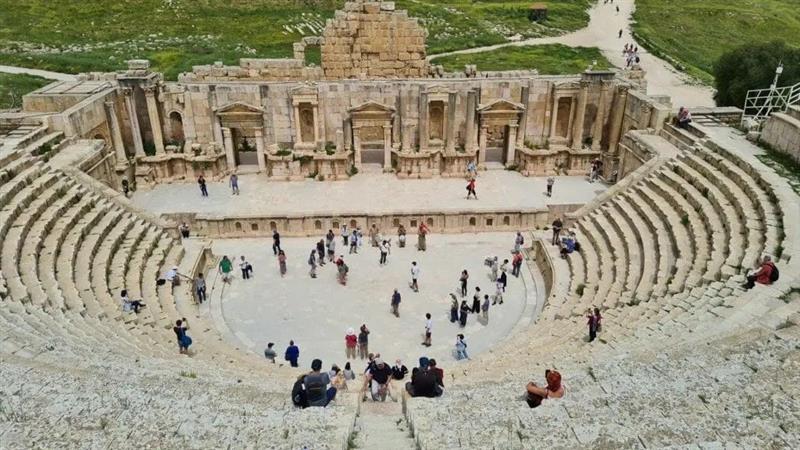
Here’s a better view of the theater
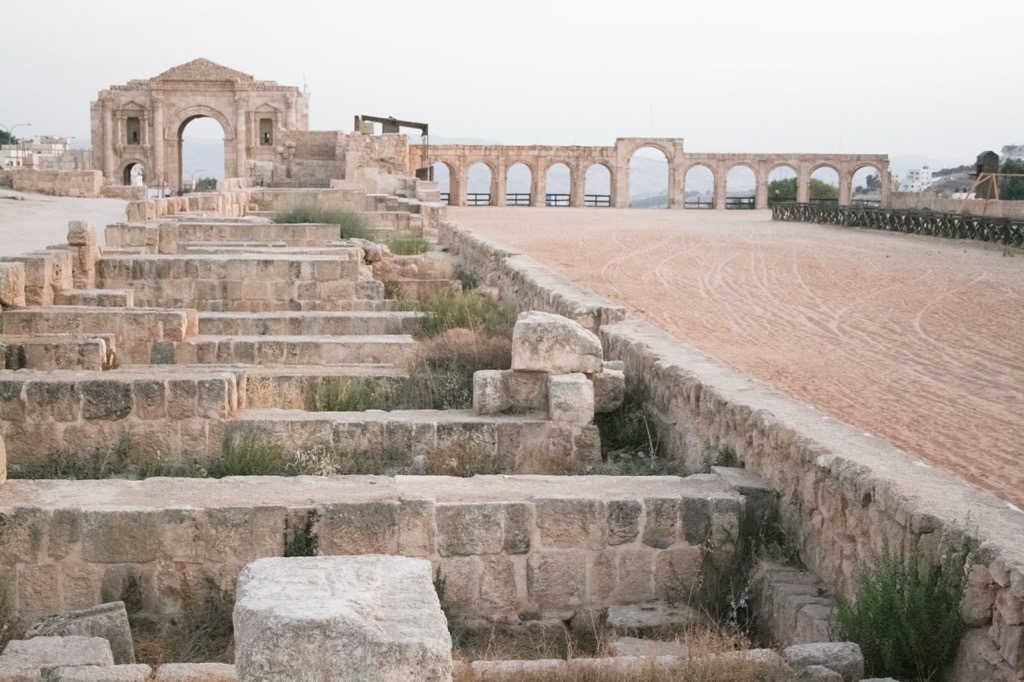
This is the hippodrome where the chariot races were held. Probably the size of 4 football fields in one. And again, cheap seats and luxury boxes both.
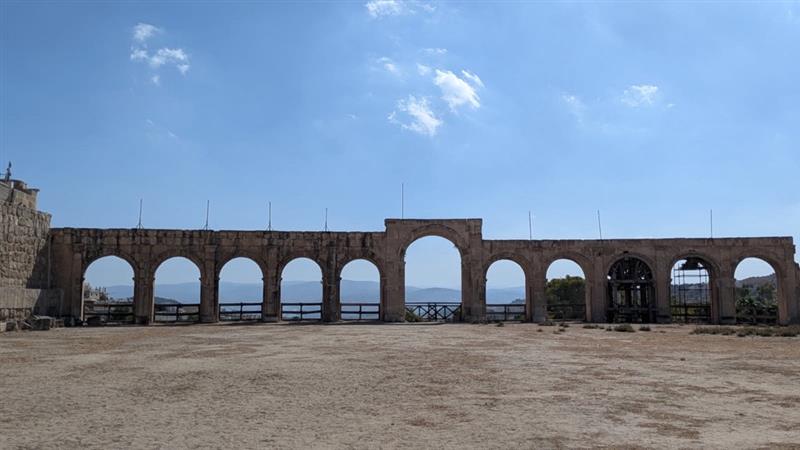
One end of the Hippodrome. The horses and chariots each lined up in one of those slots to start their race.
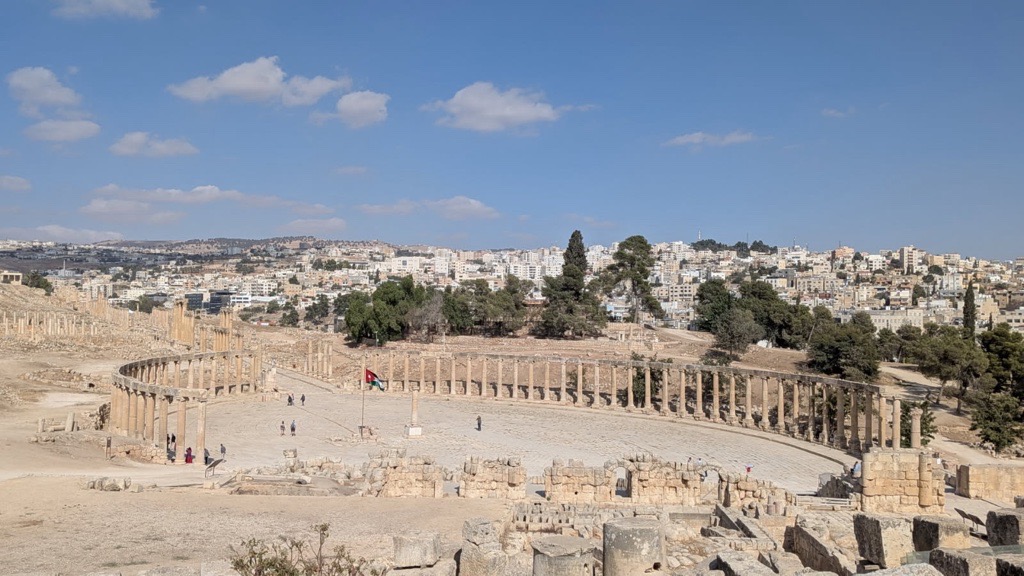
The Agora or town square
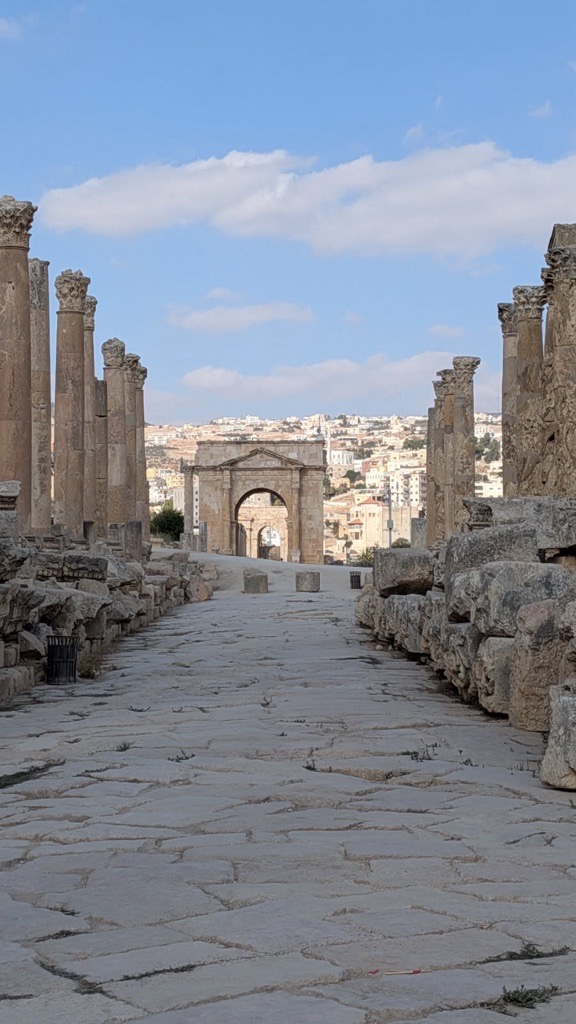
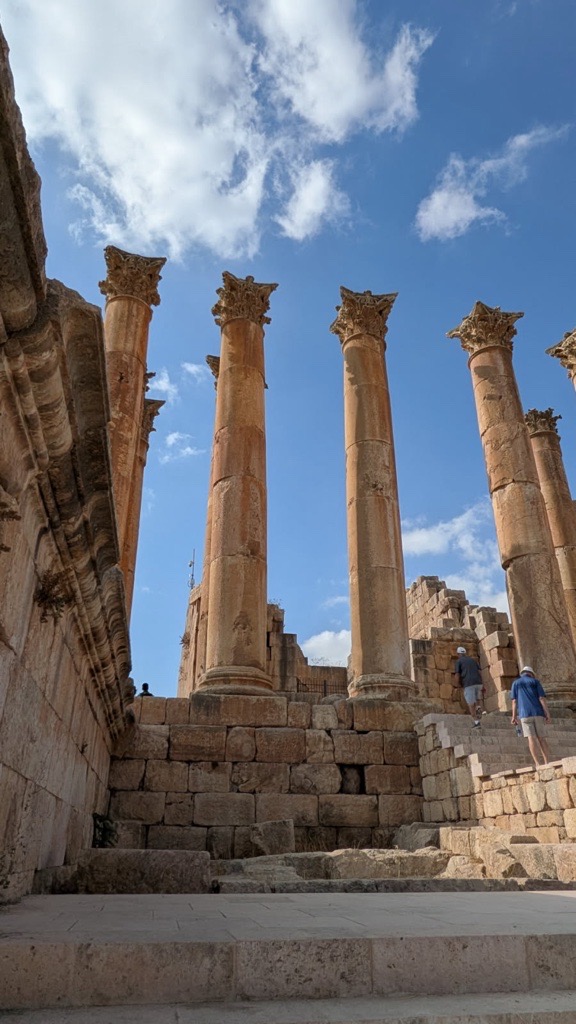
Still pretty magnificent!
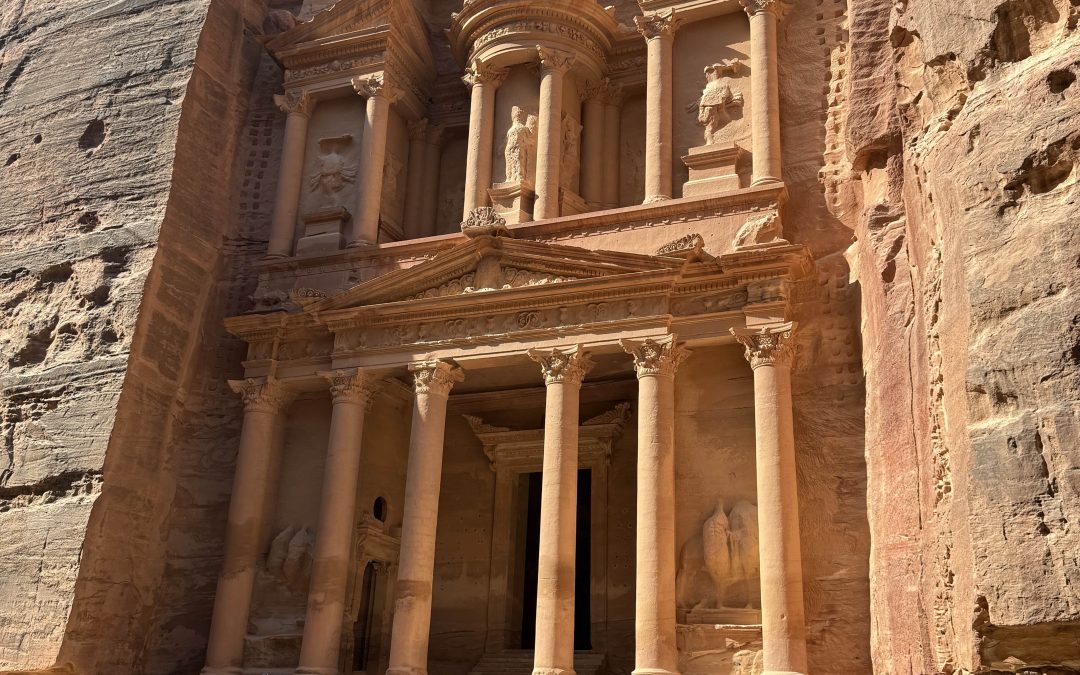
by Ryan Markiewicz | Oct 18, 2025 | Berlin's Wall
All,
Hi from Petra. Probably best known from the movie, “Indiana Jones and the Last Crusade”.
Petra is one of the 7 “new” wonders of the ancient world. It is a sight to see!
From CHATGPT:
🏜️ Origins & Nabataean Glory
- Founded: Likely around the 4th–3rd century BCE by the Nabataeans, a nomadic Arab people who controlled the lucrative incense and spice trade routes.
- Name: “Petra” comes from the Greek word for “rock.” The Nabataeans called it Raqmu, meaning “multicolored.”
- Location Advantage: Tucked into sandstone cliffs and hidden by narrow gorges (like the famous Siq), Petra was both a fortress and a trade hub linking Arabia, Egypt, and the Mediterranean.
🏛️ Hellenistic & Roman Influence
- The city flourished between 100 BCE and 100 CE, boasting monumental tombs, temples, and theaters carved directly into rose-red stone.
- In 106 CE, Rome annexed the Nabataean kingdom, renaming it Arabia Petraea. Petra continued to thrive for a time but gradually declined as trade routes shifted.
⛪ Byzantine & Islamic Periods
- By the 5th–6th centuries CE, Petra became part of the Byzantine Empire and housed several Christian churches.
- After a series of earthquakes and the rerouting of trade, Petra was largely abandoned by the 8th century.
🌍 Rediscovery & Modern Fame
- Known only to local Bedouins for centuries, Petra was “rediscovered” for the Western world in 1812 by Swiss explorer Johann Ludwig Burckhardt, disguised as an Arab pilgrim.
- It became a UNESCO World Heritage Site in 1985 and was named one of the New Seven Wonders of the World in 2007.
✨ Fun Facts
- The famous façade, Al-Khazneh (The Treasury), wasn’t actually a treasury — it was likely a royal tomb or temple.
- Only about 15% of Petra has been excavated — most of the city still lies buried under sand.
- The reddish hue that gives Petra its nickname “The Rose-Red City” comes from iron oxide in the sandstone.
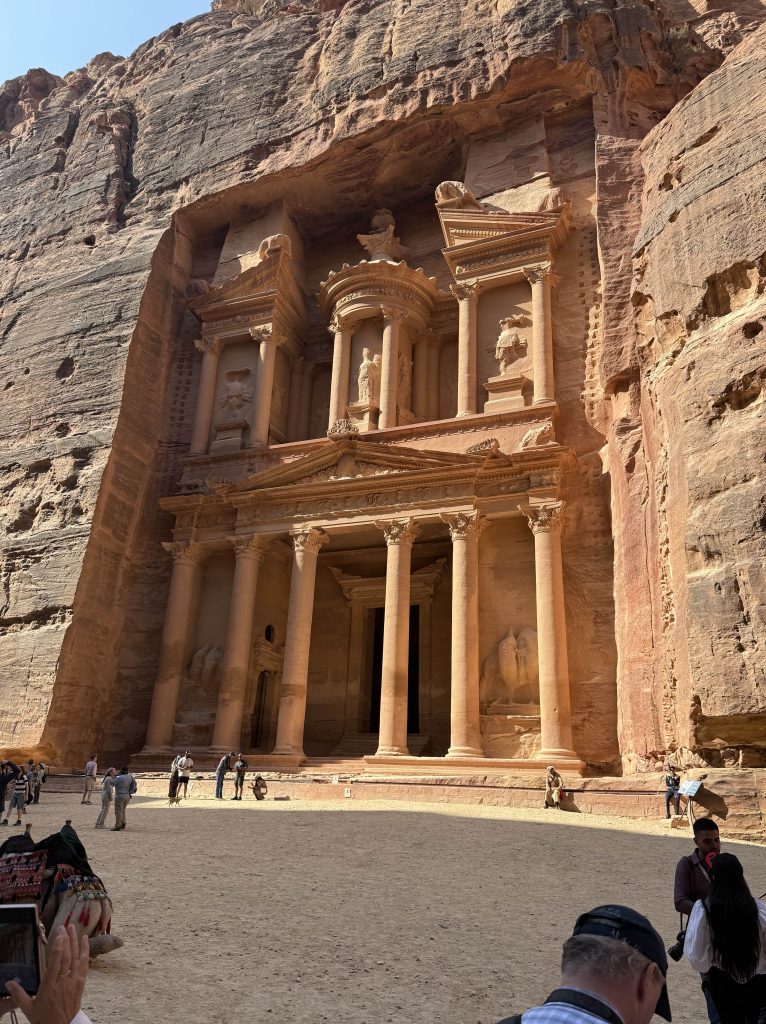
The treasury building. Very recognizable from Indiana Jones and the Last Crusade. Not really a treasury, but a tomb for the Nabatean King and his family
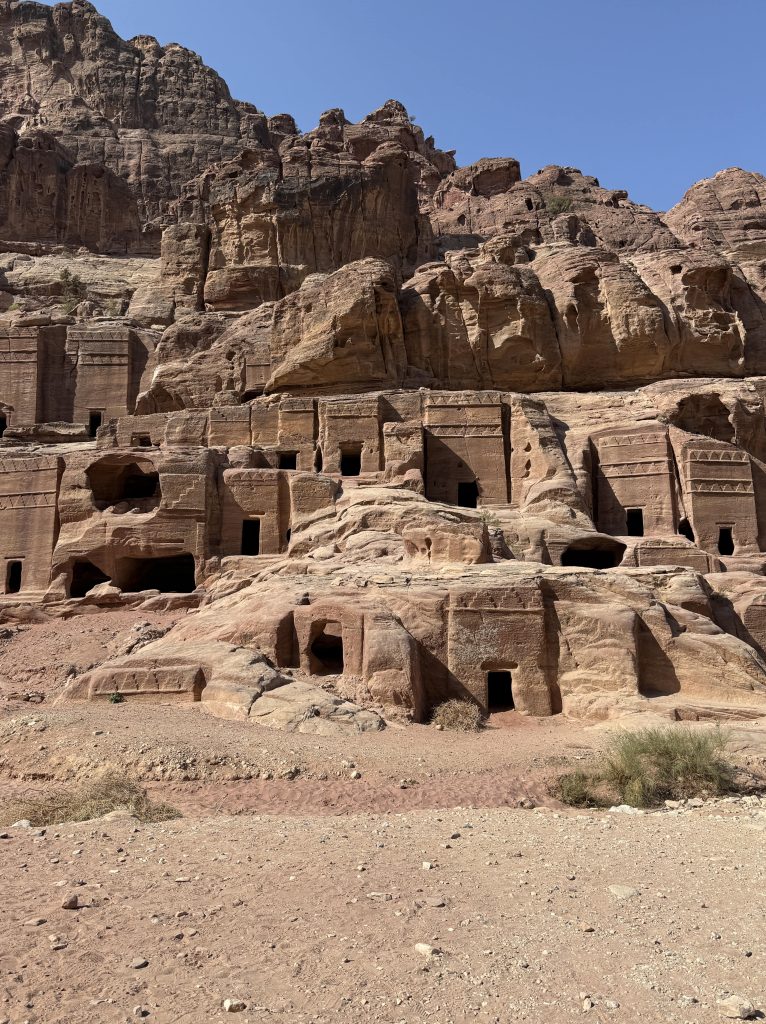
These were tombs for the lesser noblemen and their families
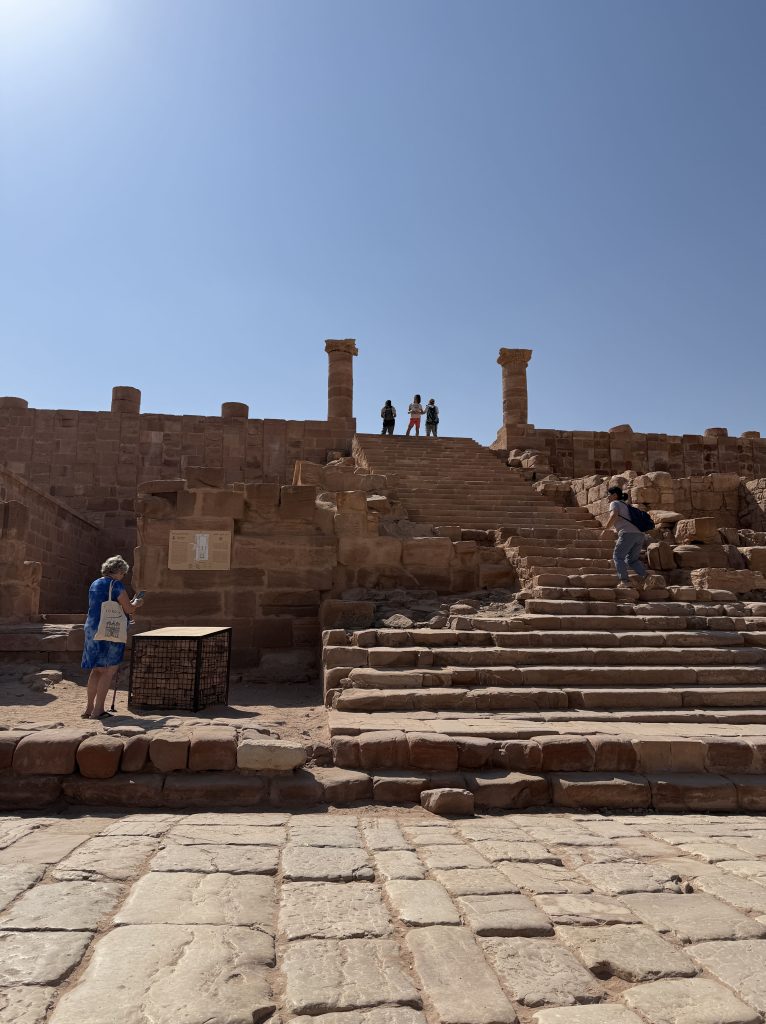
A Greco-Roman temple. The Greeks and the Romans took over the city in the early AD’s.
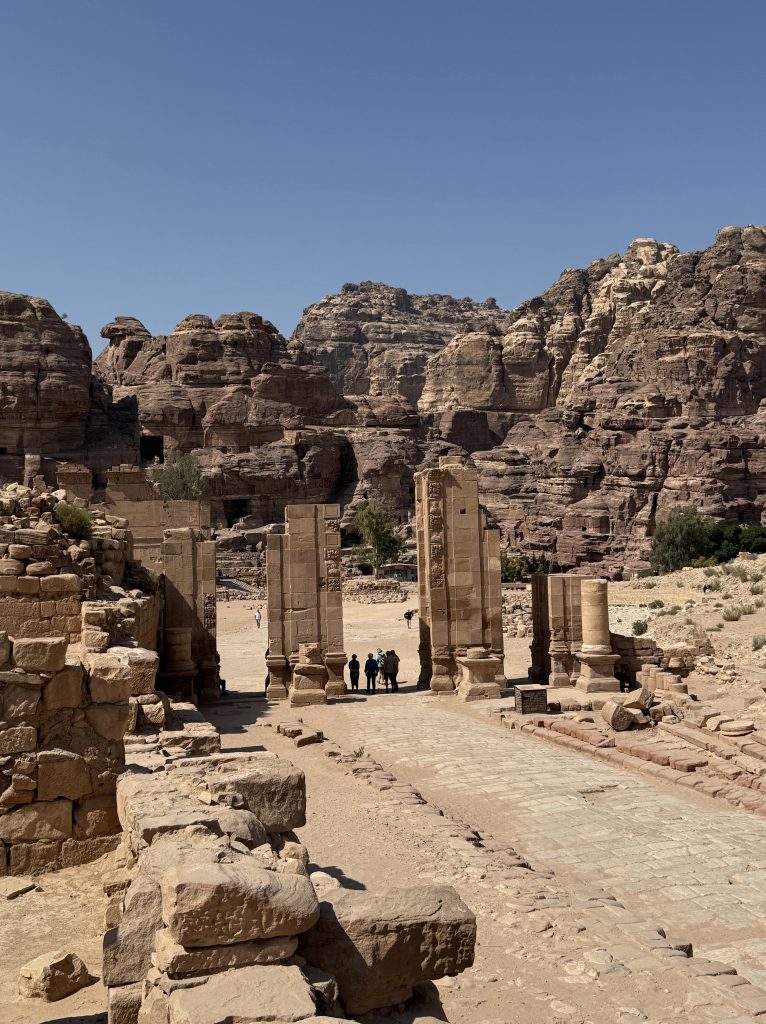
Everywhere you look there are ancient structures that still survive. And almost 90% of the ancient city remains undiscovered.
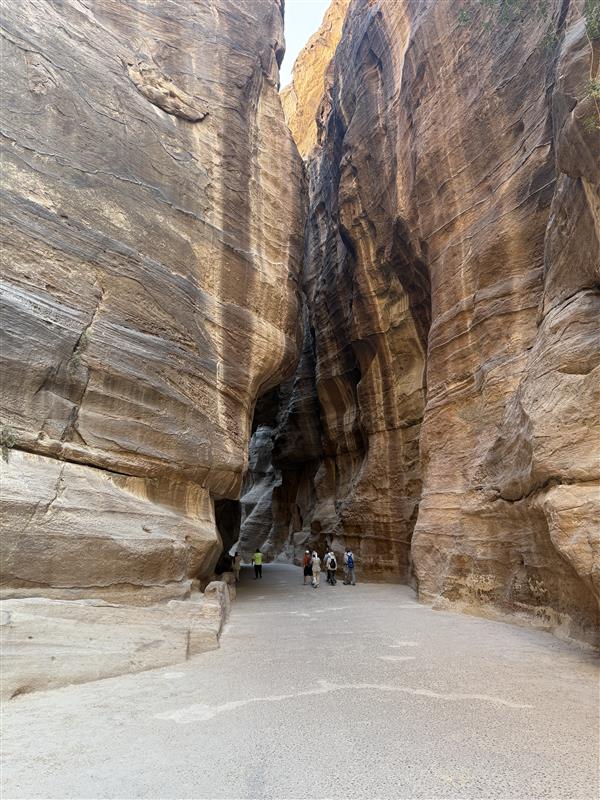
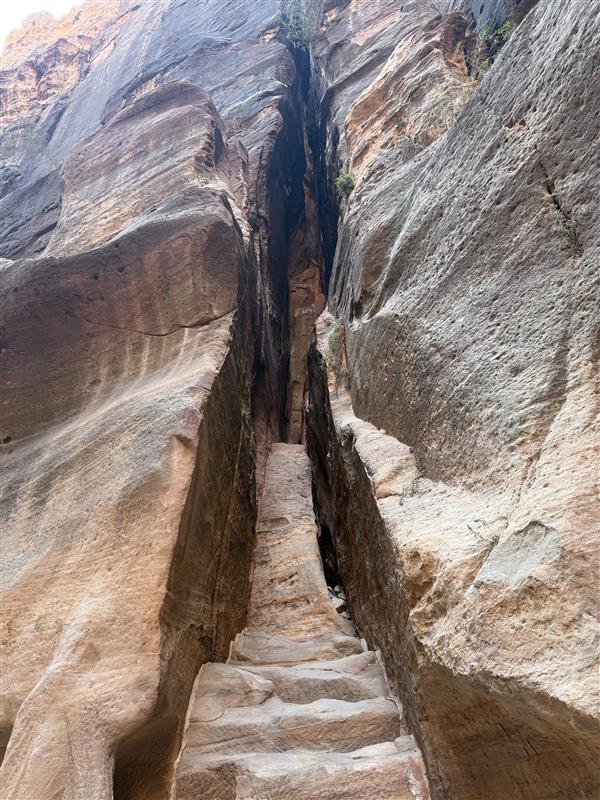
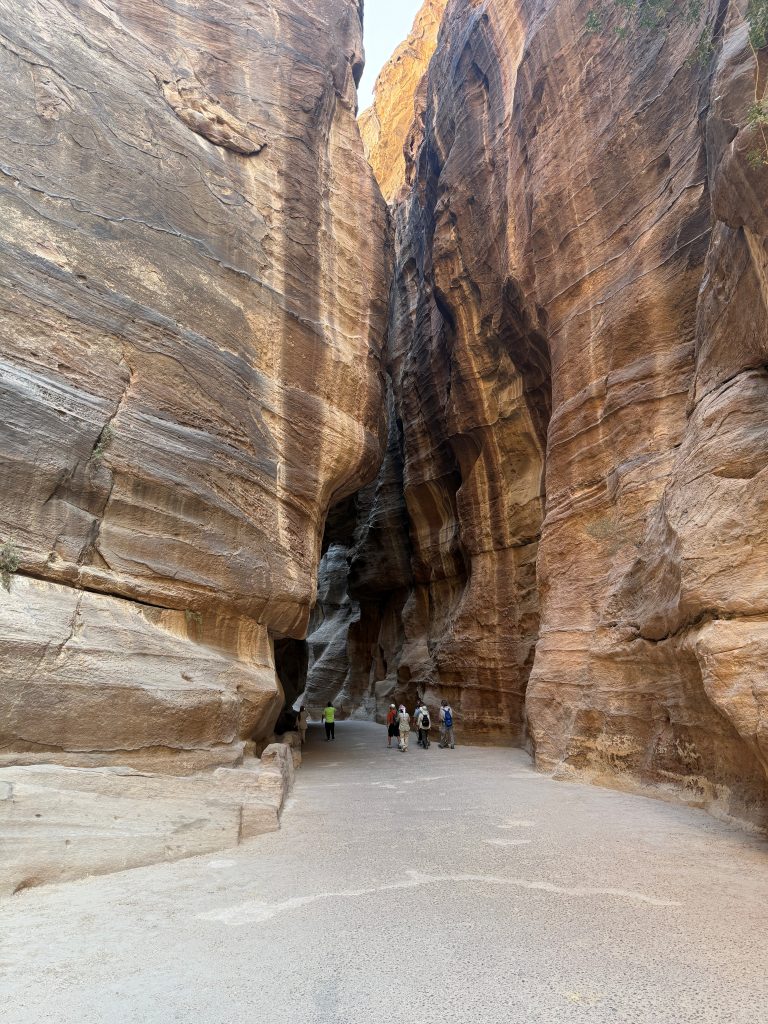
And honestly, even without all the ancient history and structures, the beauty and magnificence of the place is still awe-inspiring. Nature…
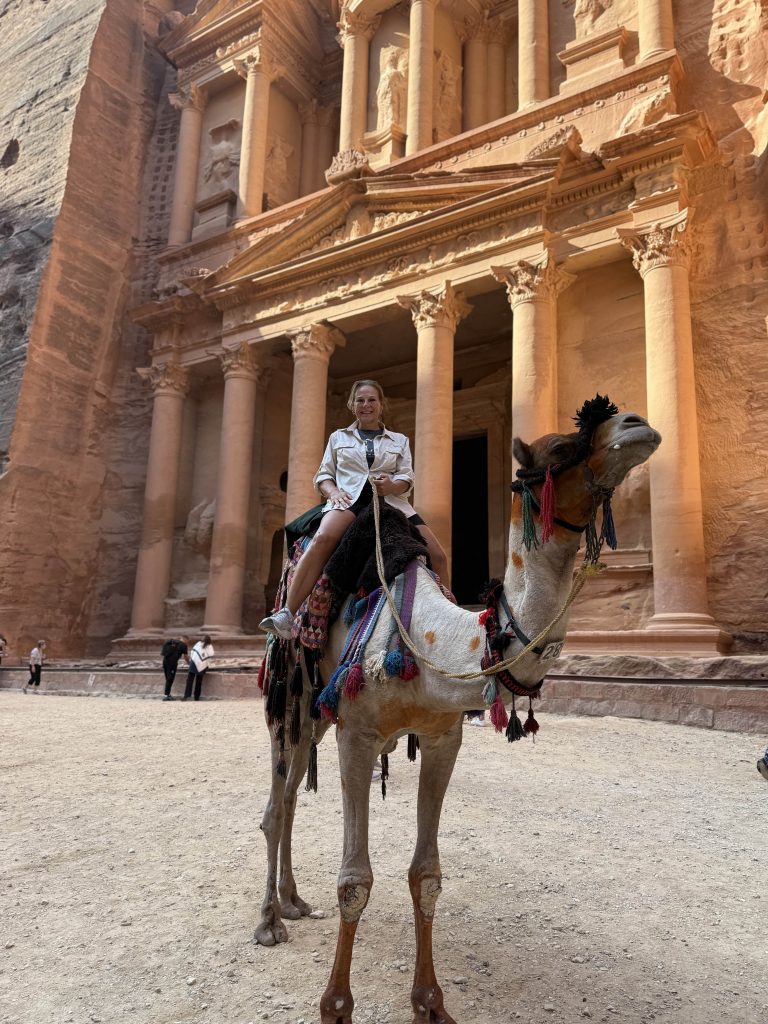
Seeing Petra on camelback. The way the ancient caravans passed through it.
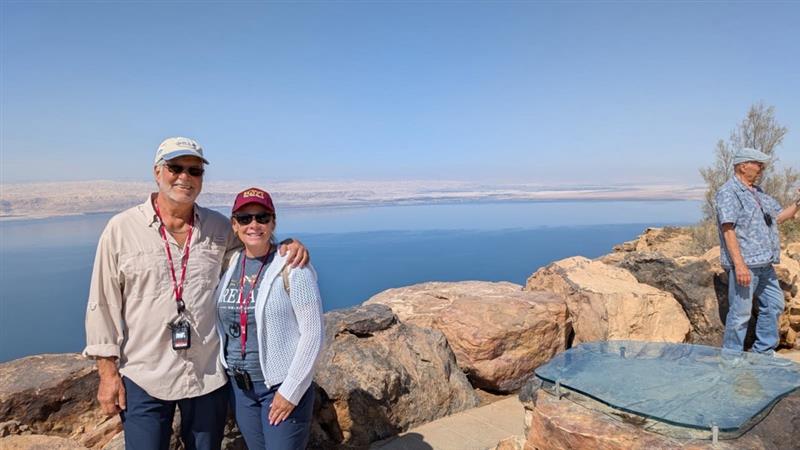
by Ryan Markiewicz | Oct 17, 2025 | Berlin's Wall
All,
Arrived in Jordan yesterday. Though it’s not far from Cairo, it feels like a completely different world — a different vibe altogether. Less crowded (120 million vs. 12 million people) and slower paced — in a good way 😊. This is my fourth time here, and it remains one of my favorite places to visit. It’s a very biblical place — so many of the stories from the Bible happened right around here.
Our first stop was the Dead Sea, the lowest exposed point on Earth. For comparison, Death Valley (the lowest point in the U.S.) sits 282 feet below sea level. The Dead Sea? 1,410 feet below sea level. Crazy low!
Because it’s about 70% salt, no life exists in this sea — maybe that’s why they call it The Dead Sea? 🤪
It’s been that way for tens of thousands of years. We went in — very cool experience — but you can’t really swim; you just bob and float. It’s a strange, weightless feeling. Some people slather themselves in the mud, which is said to be great for the skin (but my skin is already luxurious enough, don’t you think? 😉).
Just across the sea is the West Bank, where you can see Jericho and Bethlehem in the near distance. Jericho is the oldest continuously inhabited city in the world — people have lived there for over 10,000 years, long before the Egyptians built their pyramids (and I thought those were old!). The Tower of Jericho, dating back that far, is believed to be the first stone monument ever built by humankind. And of course, Bethlehem is where Jesus was born. Like I said — a very biblical area.
From there we drove through the mountains (yes, there are mountains in Jordan!) to Mount Nebo, where Moses — the Moses — died. (Did I mention this place is biblical? 😄) Pretty amazing.
Tomorrow we head to Petra — an incredible site, truly one of the wonders of the ancient world. You might remember it from Indiana Jones and the Last Crusade. I’ll send photos for sure.
Onward! -JB
P.S. Our guide, Aziz, has been terrific — explaining everything from the history to the Five Pillars of Islam, including the custom of praying toward Mecca five times a day. One of the guests asked how people always know which direction Mecca is, and Aziz said most hotels have a little arrow in the room pointing the way. Then he added, “But now, there’s an app for that.” Not kidding. 😄
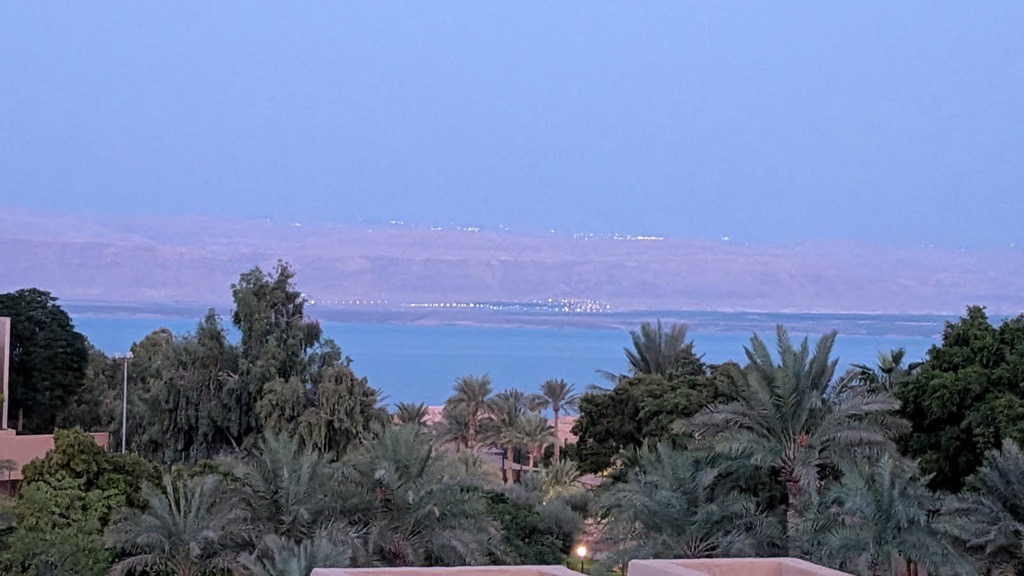
The Dead Sea. Jericho, on the West Bank, in the distance
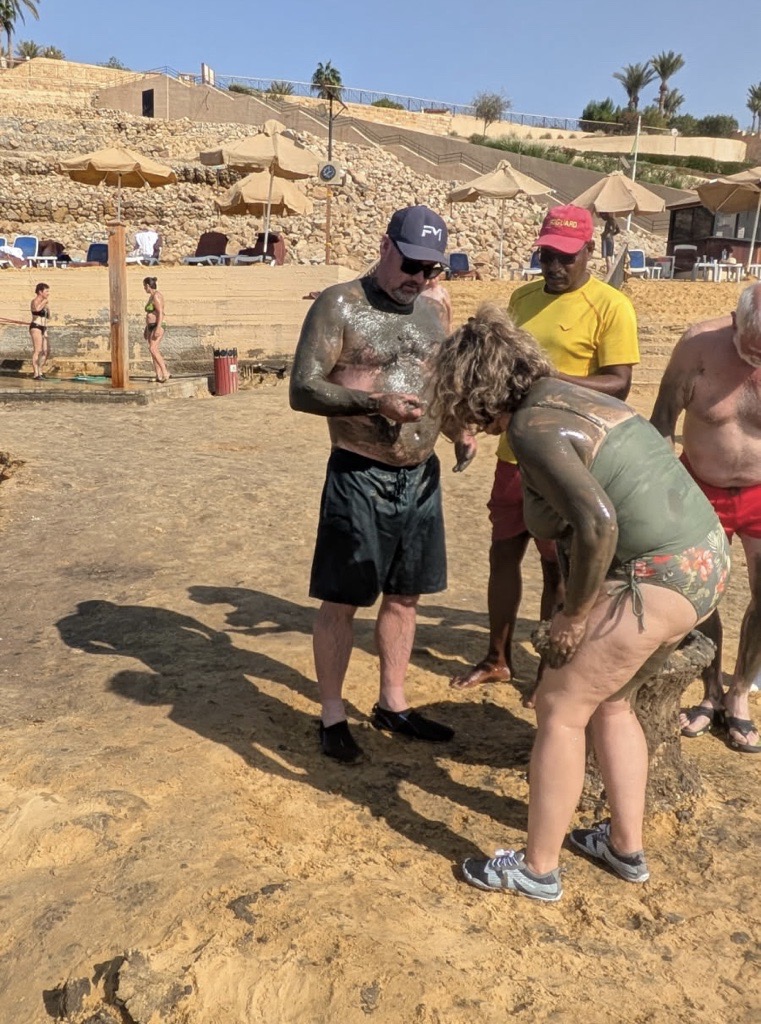
Our new friends Tracy and Scott got mudded up before jumping into the water
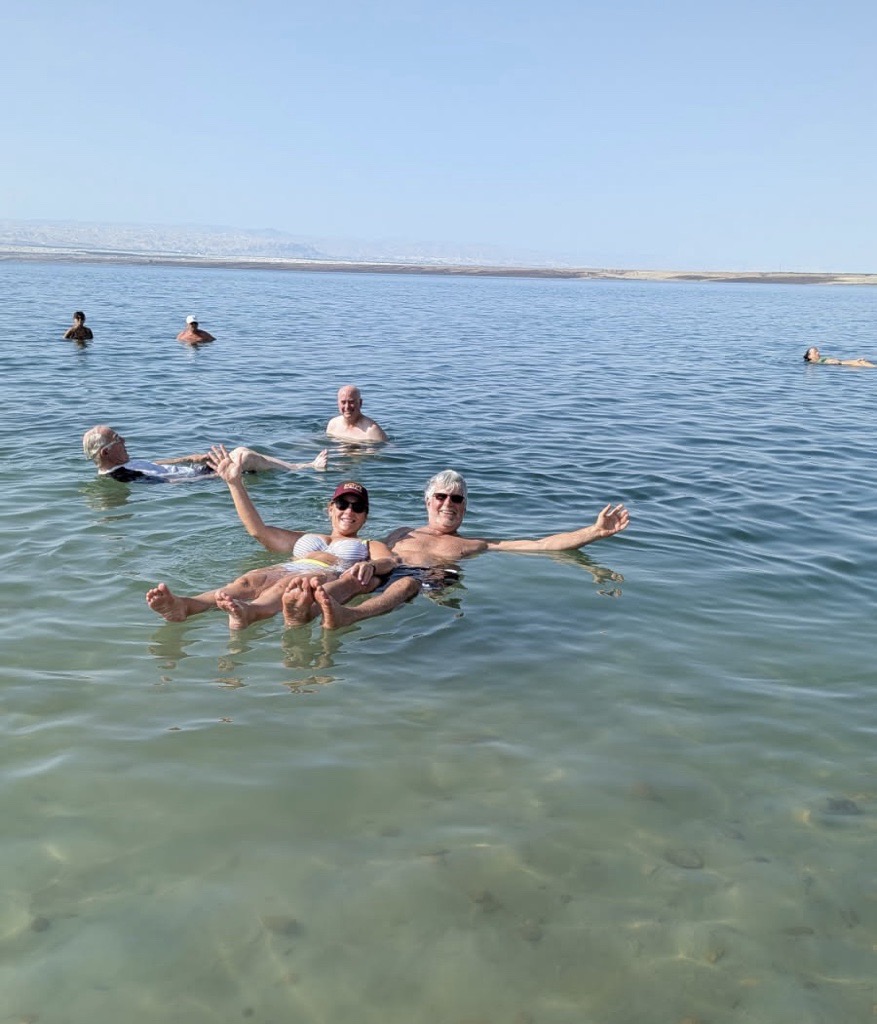
Floating in the Dead Sea
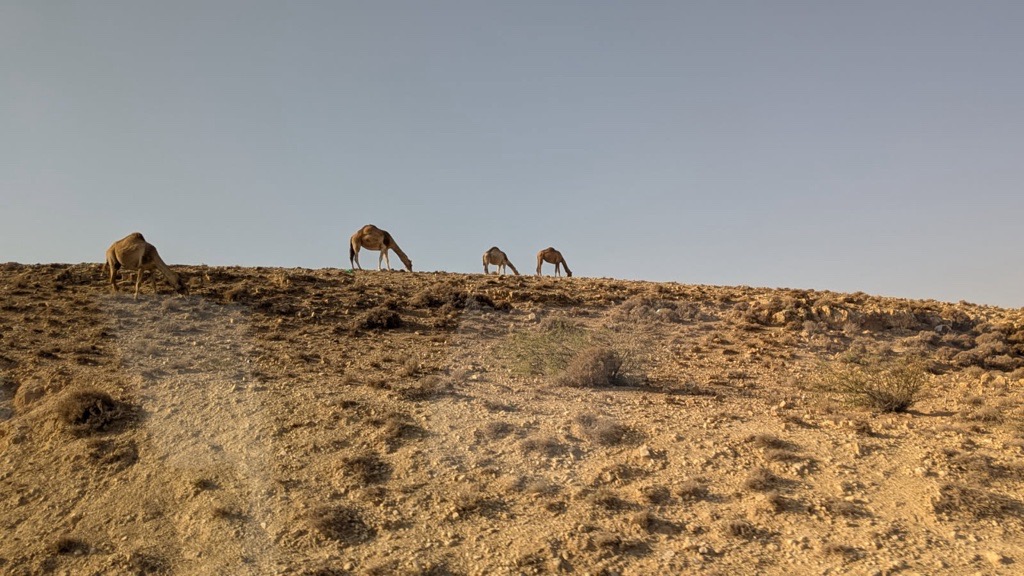
Camels on the hillside along the road
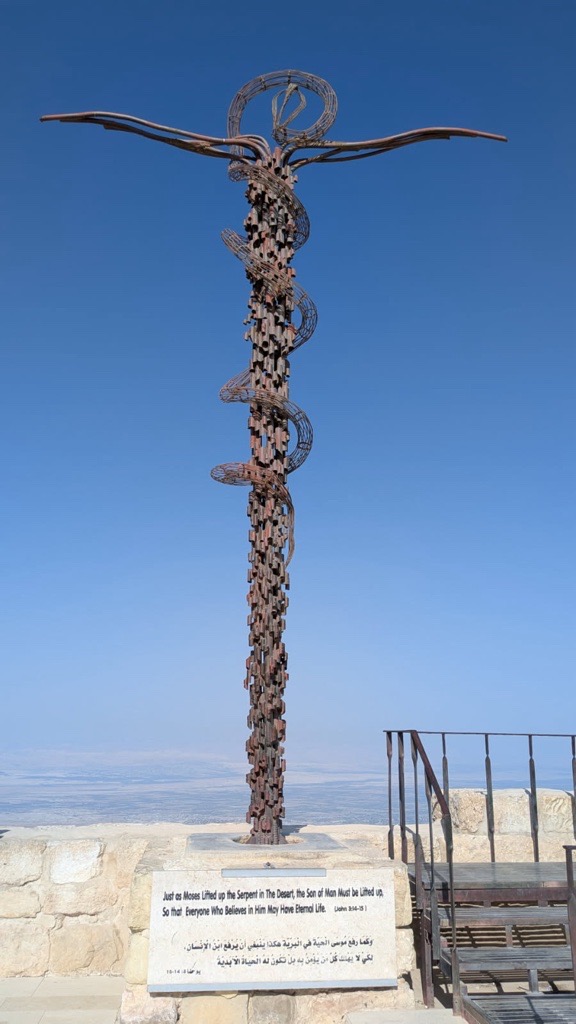
Mt. Nebo. Where Moses died after leading his people out of Egypt and wandering for 40 years in the desert (supposedly died at the age of 120!)
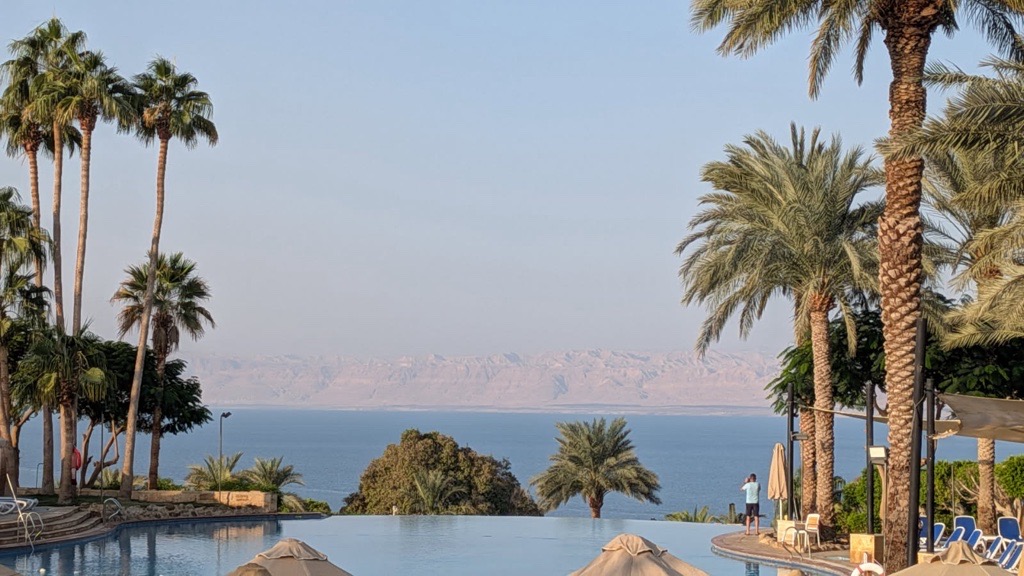
The Dead Sea from our hotel

Awesome!
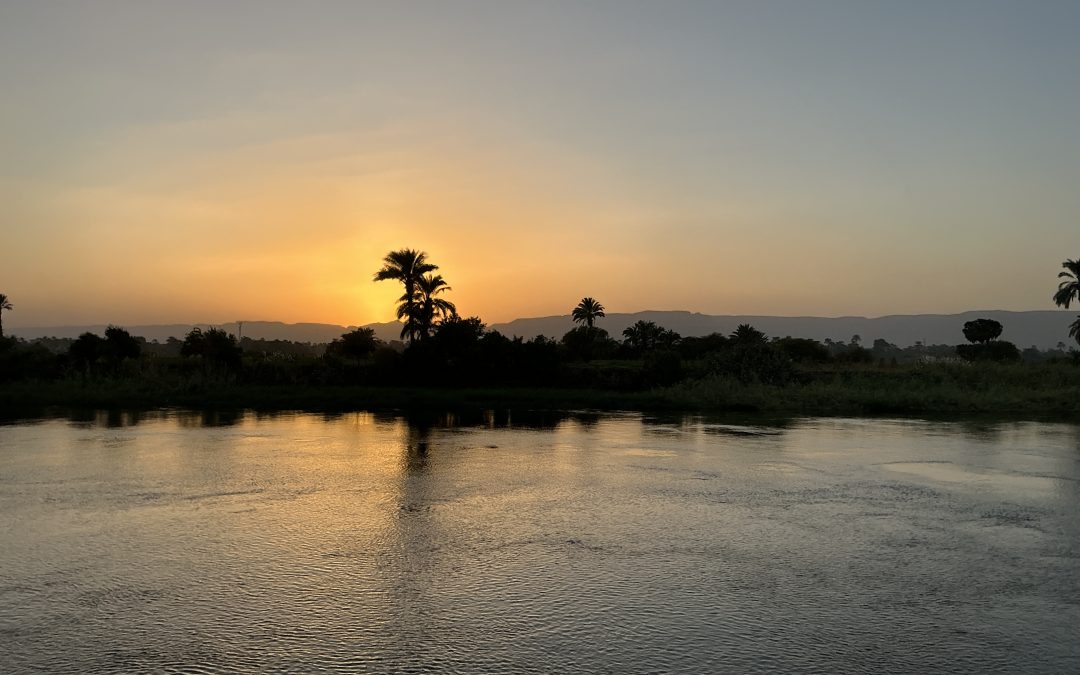
by Ryan Markiewicz | Oct 15, 2025 | Berlin's Wall
All,
From Luxor, we flew to Aswan, where the famous dam is. This was built in the 60’s to control the annual flooding, which used to wreak havoc with its unpredictability. Now its flow is controlled, so life along the river is less dangerous. So much so that although the Nile River Valley is only 10% of Egypt’s land, 90% of its population lives along its banks. Incredible. They are trying to get people to move westward into the desert, but I think that is a tough sell. Some hardscrabble land.
We took a great small boat ride down to a Nubian village. Nubians live in southern Egypt and have much darker complexions than Egyptians from the north. Actually, due to the long-time influence of Greeks and Romans on the Mediterranean coast, Egyptians can range from very dark to very light-skinned. Not what some people expect.
We visited several more temples and learned about the rich and wonderful Egyptian culture, and flew back to Cairo today. Tomorrow, onto Jordan 🙂
Onward!
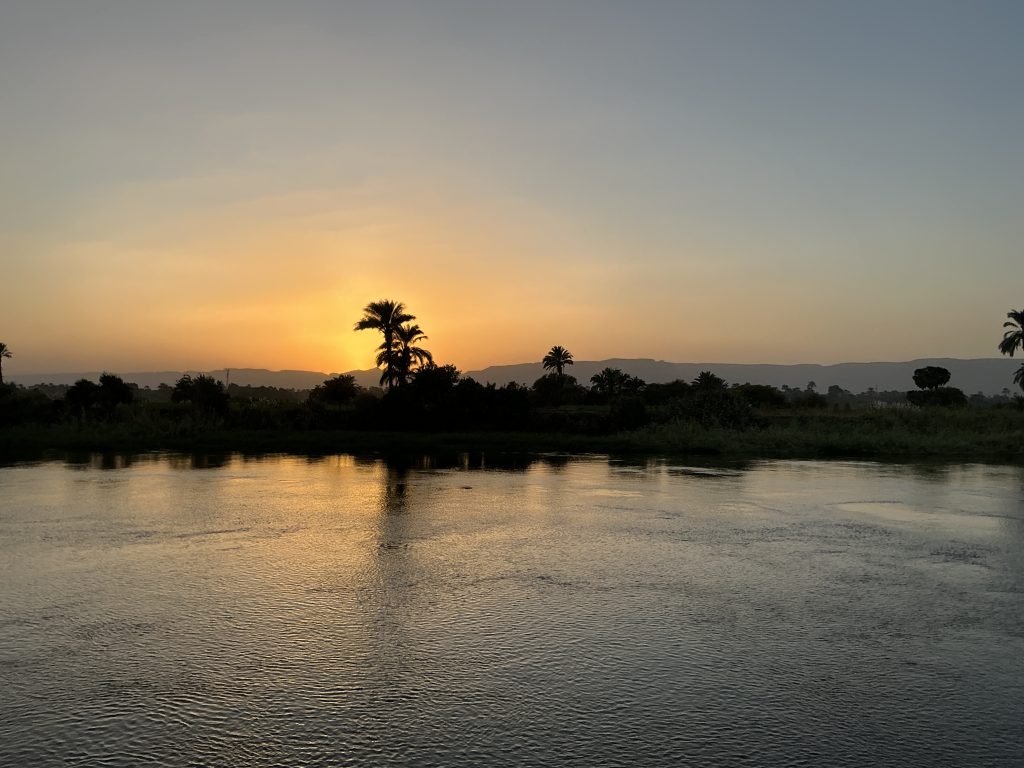
Cruising down the Nile
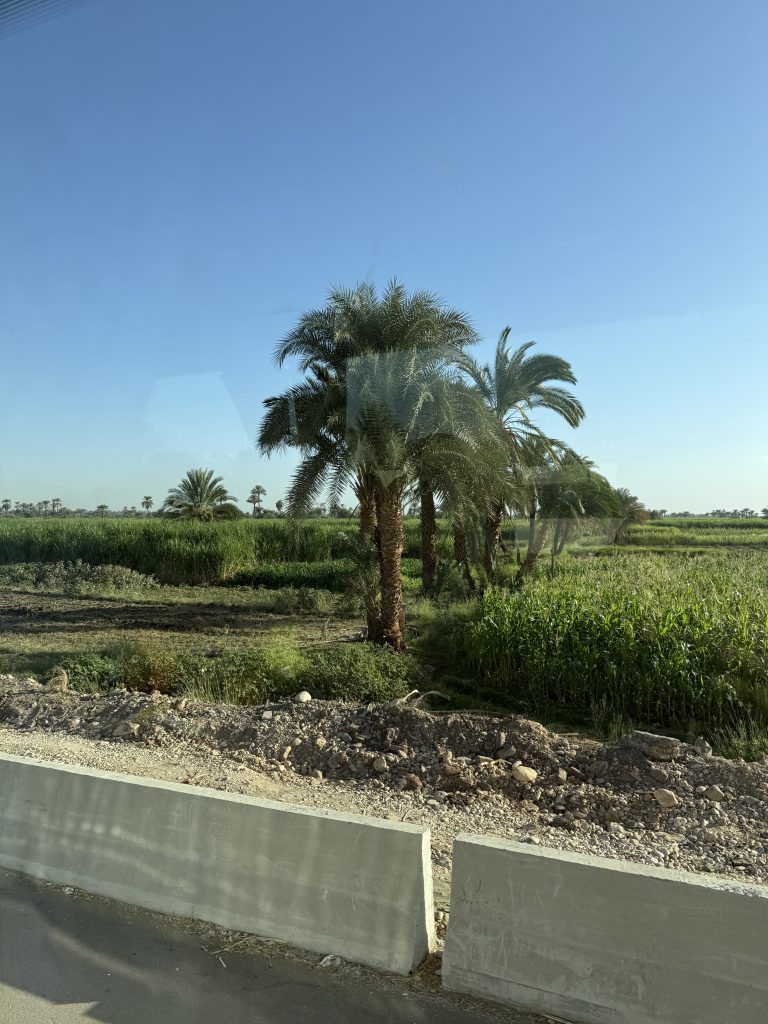
The land is so fertile along the river. Because of that 90% of all Egyptians live by the Nile.
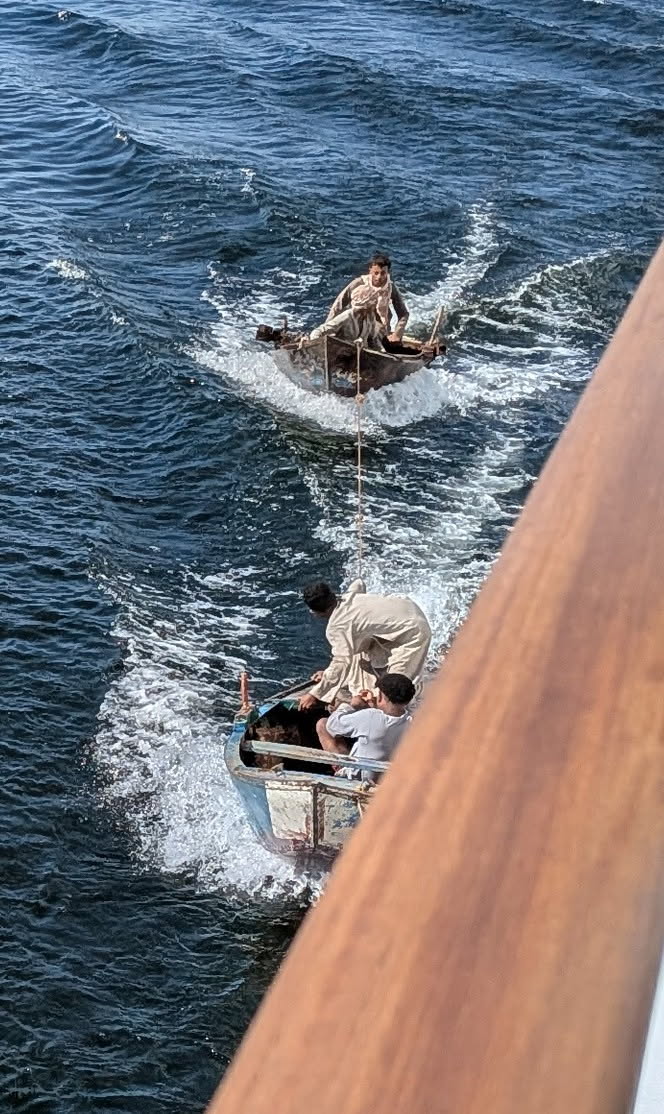
Locals tied onto our boat, trying to sell goods to the passengers. WAY better than Somali pirates coming after us 🤣

This is the Nile, looking north from the Aswan Dam. And that’s a modern-day Sphinx guarding it hahahaha
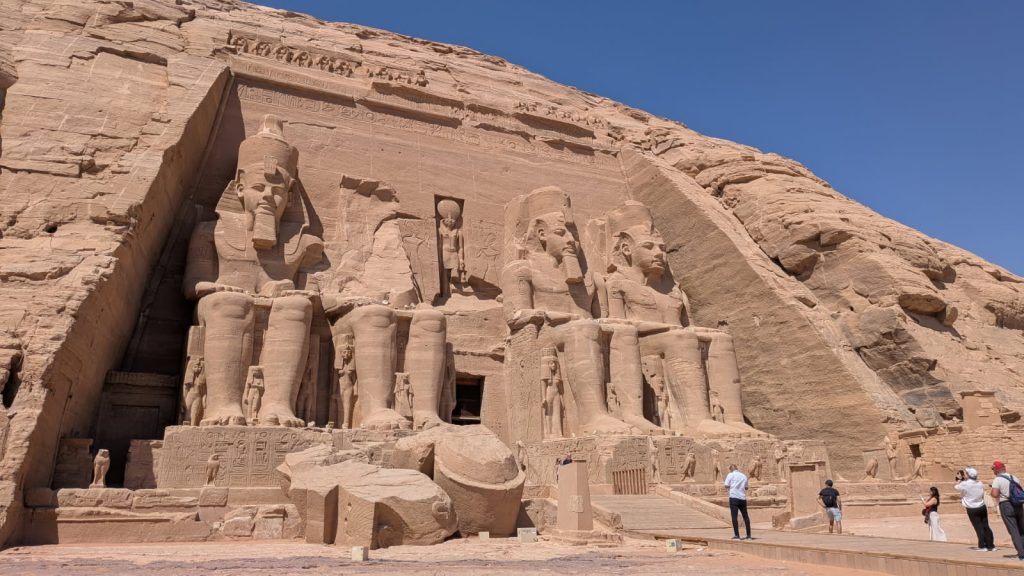
This is the Temple of Abu Simbel. Incredible!!!
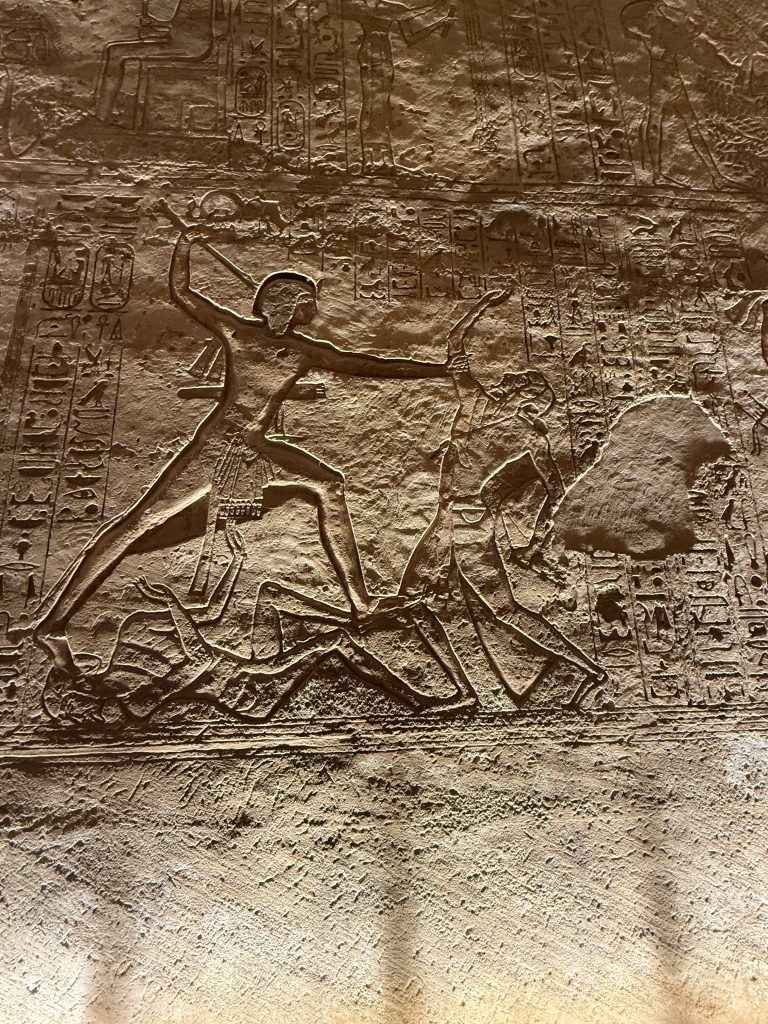
Lots of pretty violent battle scenes portrayed everywhere on the walls. Keep in mind these are over 3,500 years old.
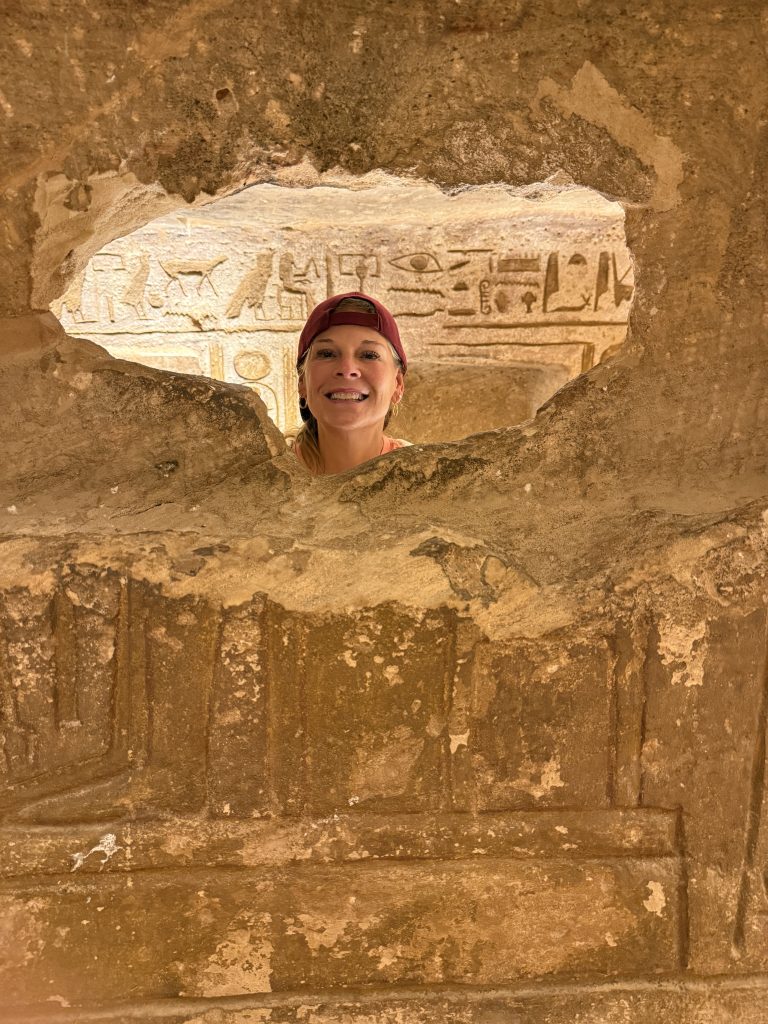
A friendly face peering out through the wall of the tomb
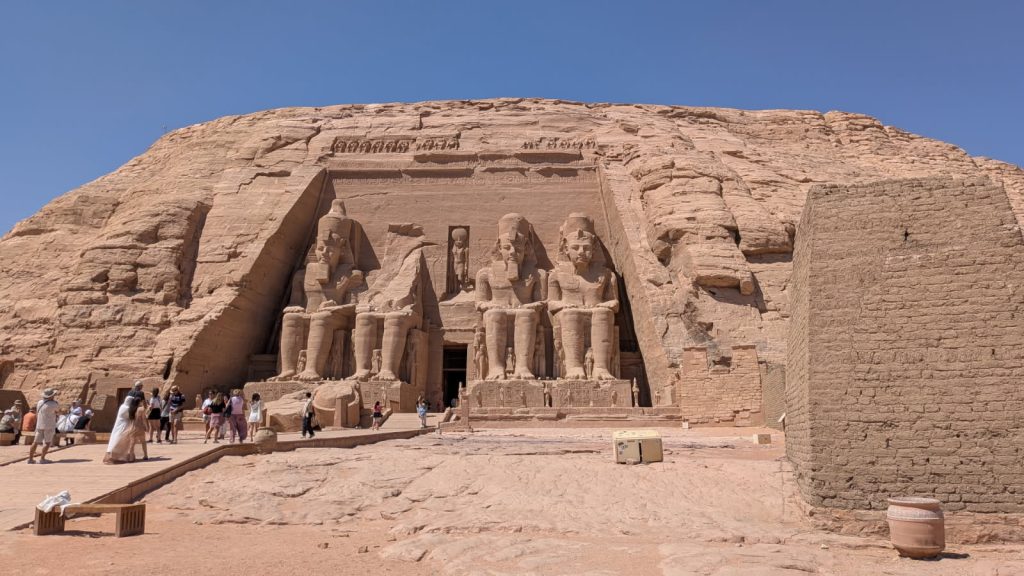
Pretty incredible, huh?
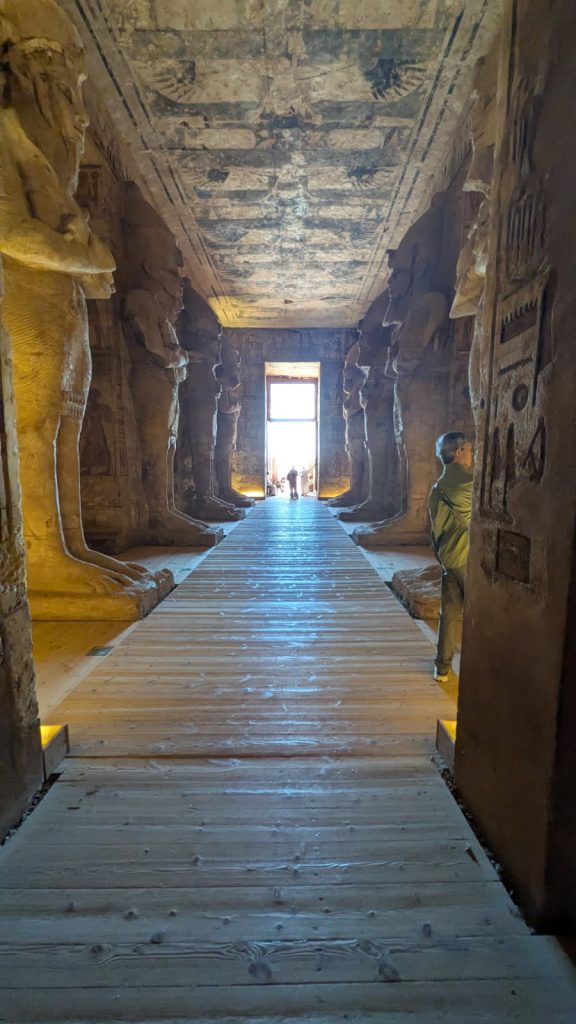
And this is the inside
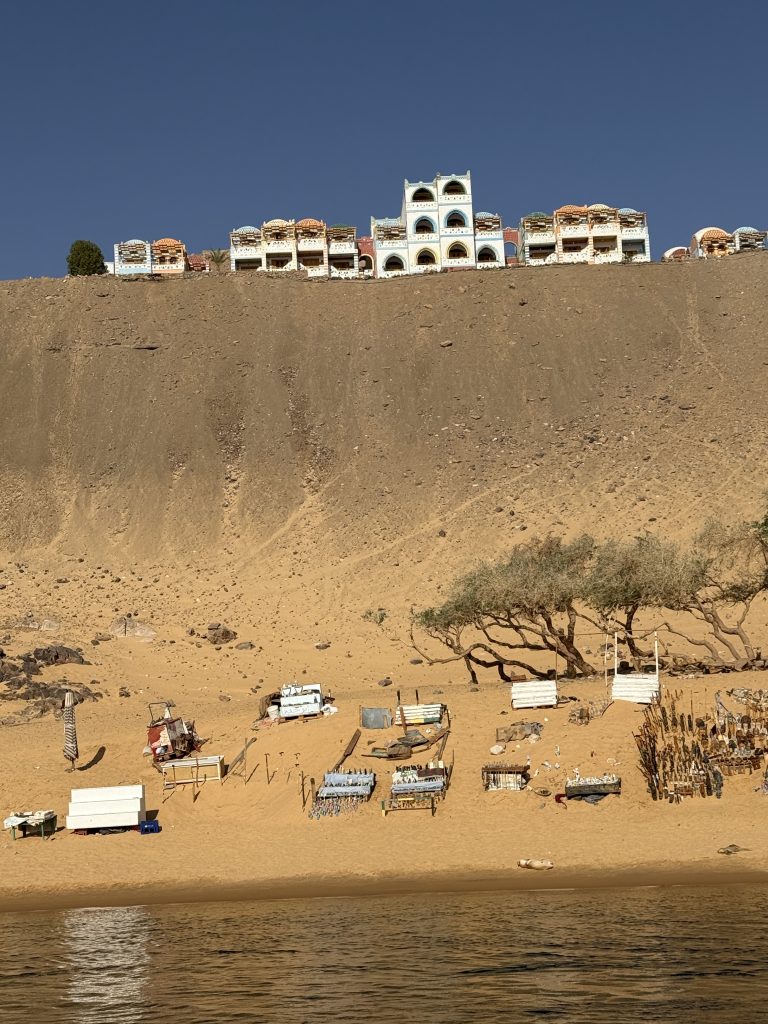
Nubian village. 30 miles from the border of Sudan
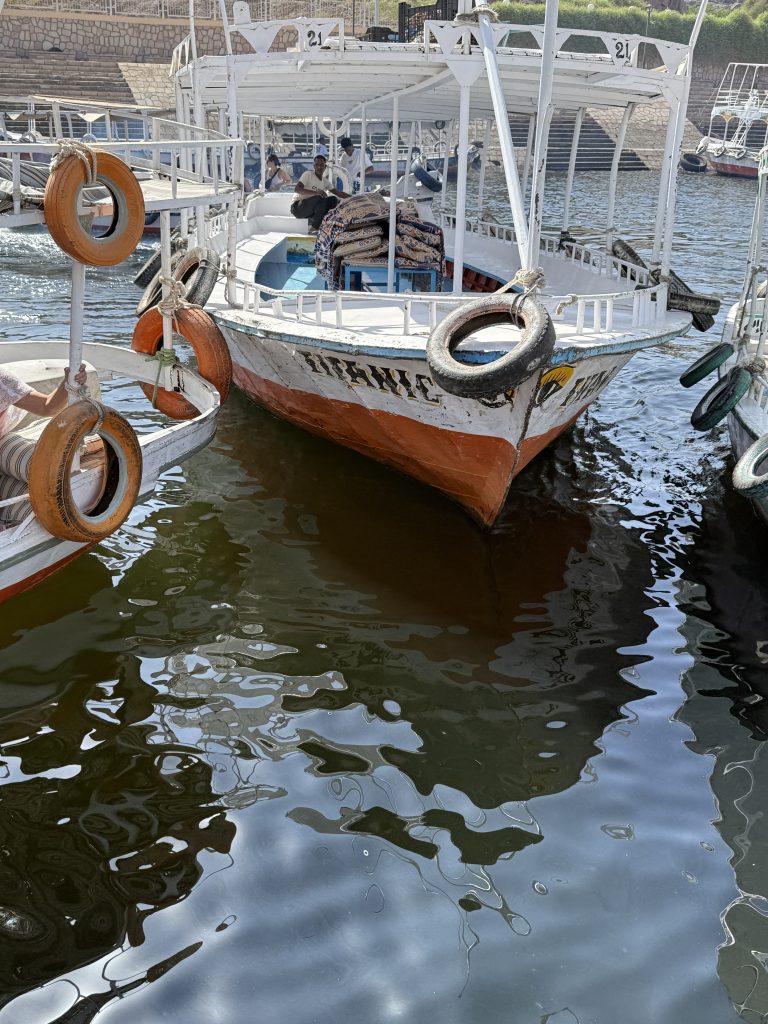
We took this small boat to the Nubian village. Notice the name: Titanic. I figured it was safe. No icebergs here hahahahaha
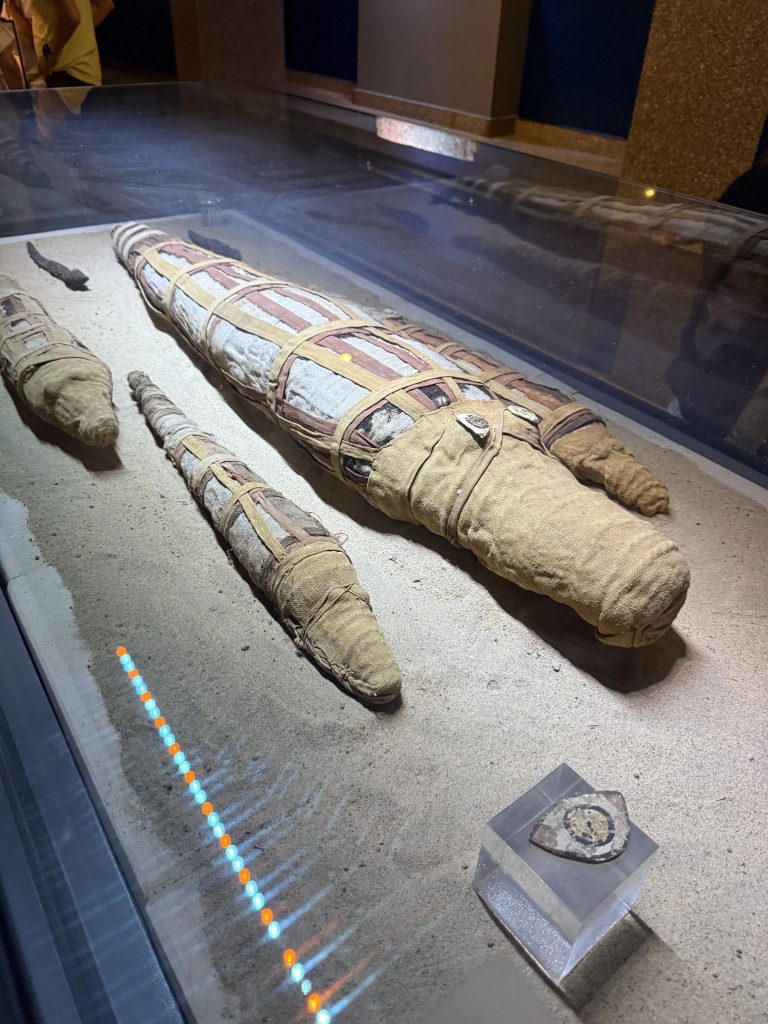
Crocodile mummies
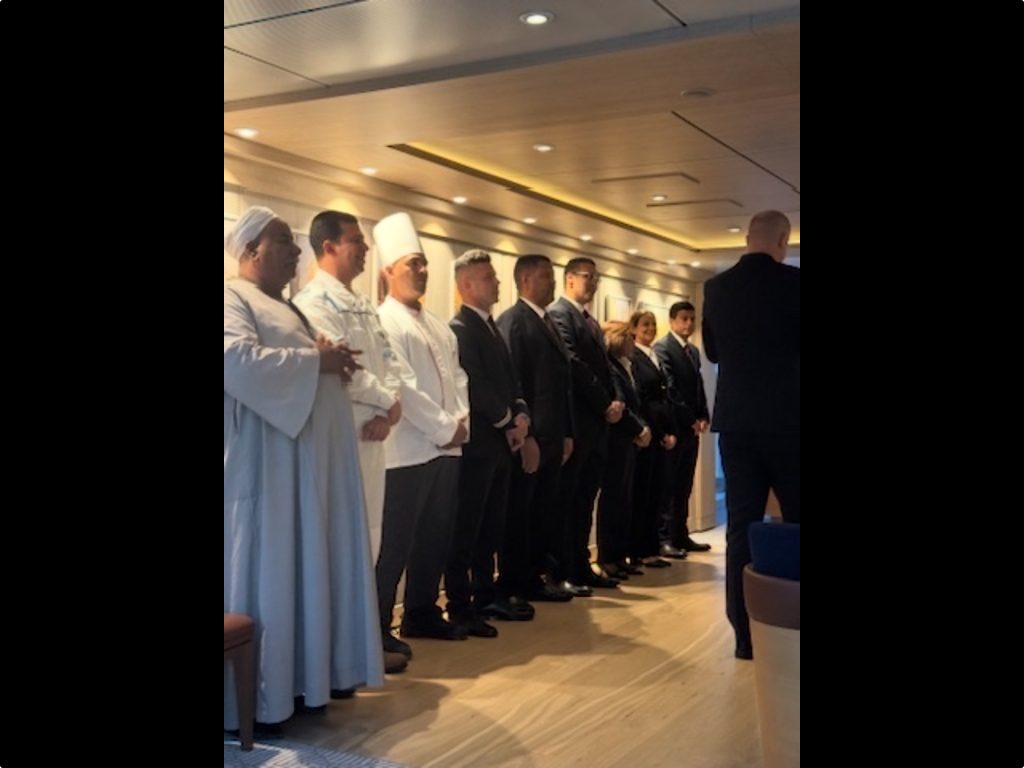
Here’s a contest: Guess which one is the captain of the ship?
Page 1 of 1512345...10...»Last »
















































